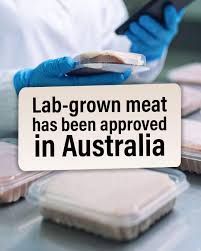Cultivated Meat Is Hiring: What Vow’s FSANZ Approval Means for Food-Tech Jobs in Australia
A Scientific Milestone, A Talent Wake-Up Call
When Sydney-based alt-protein startup Vow secured regulatory approval for its cultured quail product from FSANZ (Food Standards Australia New Zealand), headlines rightly celebrated the scientific milestone. But behind the slick bioreactors and media buzz lies a less discussed, yet equally vital question: who will build, scale, and commercialise this new frontier of food production?
For purpose-led businesses working at the cutting edge of sustainability, this approval is more than a win for cellular agriculture. It’s a signal that Australia’s alt-protein sector is maturing - and the race for specialised talent is on.

A Regulatory Win That Signals Scale-Up
Australia is now one of only a handful of nations to greenlight cultivated meat for human consumption. Vow’s approval is likely to embolden investors, trigger follow-on regulatory applications, and ramp up commercial interest in everything from precision fermentation to hybrid plant-cellular products.
The leap from lab prototype to market-ready product, however, brings a cascade of hiring needs:
- Bioprocess engineers to optimise production systems
- Quality assurance and regulatory affairs experts
- Fermentation and tissue culture scientists
- Product development chefs and commercialisation strategists
- Manufacturing leads for scale-up facilities
This is not just the creation of a new industry, it’s the creation of entirely new job families.
Australia’s Opportunity – and Risk
Australia is well-placed to become a regional hub for alternative proteins, with strong life sciences research, supportive policy signals, and growing venture appetite. But the domestic talent pipeline is already showing signs of strain.
Many of the technical skills required are still relatively rare in Australia, especially those with industry-level scale-up experience. There’s a risk that without deliberate workforce planning, companies will:
- Compete unsustainably for a small pool of qualified candidates
- Over-rely on overseas recruitment (which introduces risk and delay)
- Slow down innovation pipelines due to hiring bottlenecks
What Purpose-Led Companies Can Do Now
If you’re a startup founder, investor, or industry partner in this space, now is the time to get ahead of the curve:
- Map out future skill needs 6-12 months before you hire
- Build bridges with universities and research centres to shape talent pipelines
- Partner with specialist recruiters who understand the nuances of hiring in food-tech, cleantech and sustainability
- Design EVP and onboarding with purpose and technical rigour to retain specialised hires
From Passion Projects to Scalable Professions
We’re entering a phase where many alt-protein businesses are maturing beyond passion-led teams into operational scale-ups. That’s a very different hiring challenge. Culture fit, technical capability, commercial acumen, and regulatory literacy all need to co-exist in the same person or team.
And yet, many job seekers remain unaware that roles in cultivated meat even exist in Australia. If we want to grow this industry ethically and sustainably, we need better storytelling around the work itself: why it matters, who it suits, and what careers look like inside the petri dish.
Final Thoughts: Are We Ready for the Alt-Protein Workforce?
The FSANZ approval for Vow isn’t just a green light for product launch, it’s a flashing signal to Australia’s talent ecosystem. Do we have the people, systems and imagination to support a food revolution?
At Careers for Purpose, we work with founders and scale-ups at the intersection of science, sustainability and impact. If you’re building the next generation of food systems, energy storage, or climate resilience - we can help you find and grow the talent to match your ambition.
Because without the right people, even the most innovative lab-grown quail will never fly.



